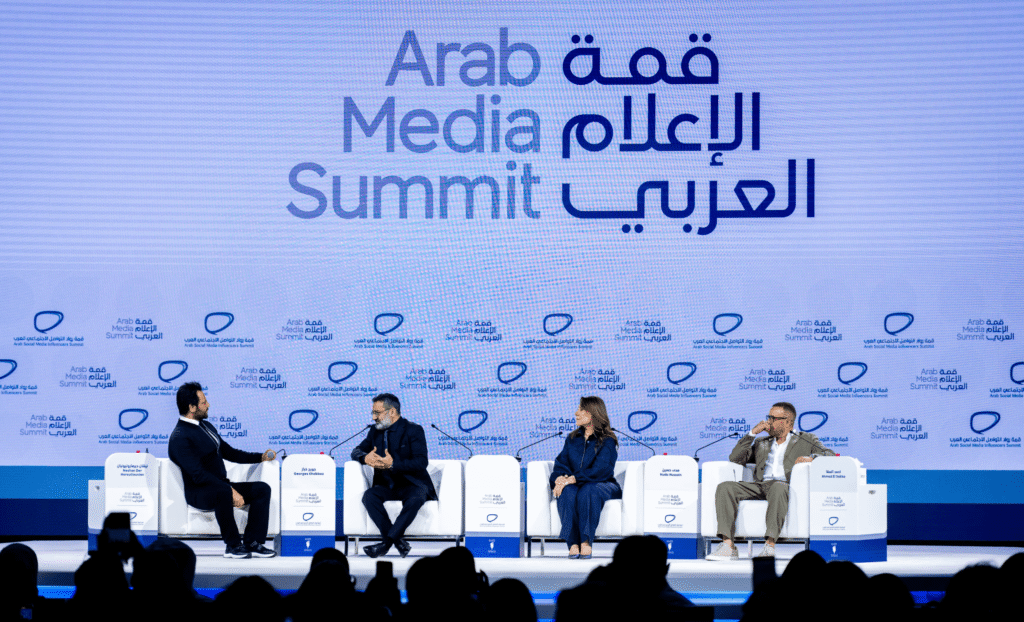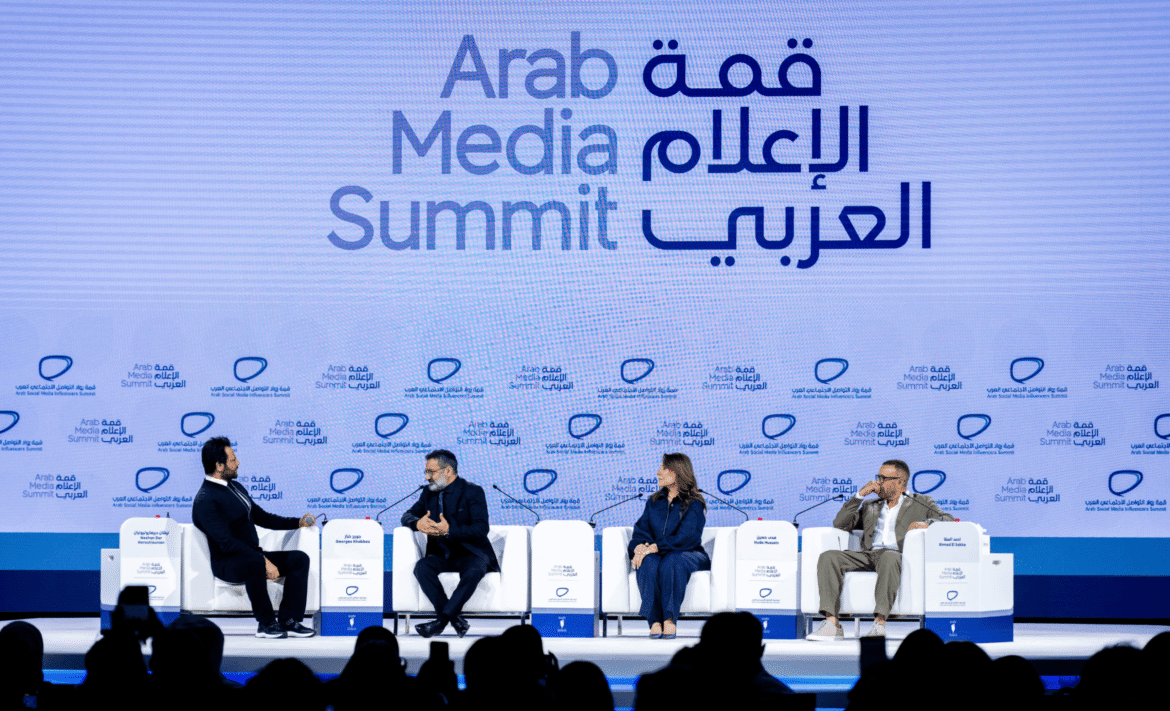Table of Contents
Dubai’s gaming sector sees 16.6% growth since launch of the Dubai Programme for Gaming 2033
Arab drama celebrated as a powerful tool for social impact and cultural storytelling
The third and final day of the Film and Gaming Forum, hosted under the Arab Media Summit 2025 and organised by the Dubai Film and Games Commission, highlighted the disruptive effect of gaming on industries and the cultural impact of Arab drama.

Gaming as a Driver of Innovation
In a highlight session ‘Gaming Across Industries: Education, Government & the Private Sectors’, experts spoke about how Dubai is shaping a world-class gaming ecosystem through talent development, public-private collaboration, and advanced technology.
Moderated by First Lieutenant Rashed Mansoor Alawar, Virtual Technology Center, Dubai Police, the panel comprised:
Faisal Kazim, Head of the Dubai Programme for Gaming
Rob Auten, CEO of Hexagram and Rethink Entertainment
Sophie Boutros, Executive Director at the Mohammed Bin Rashid School for Communication (AUD)
Kazim outlined the programme’s ambitious vision of the Dubai Programme for Gaming 2033, launched in 2023 by His Highness Sheikh Hamdan bin Mohammed bin Rashid Al Maktoum. The programme aims to rank Dubai among the world’s top 10 gaming hubs and establish 30,000 new jobs.
Kazim noted that while the MENA region is a strong consumer in the $200 billion global gaming industry, its production footprint remains nascent. He emphasized the need to equip talent with multi-purpose digital skillsets, highlighting the programme’s early work in mapping the local ecosystem—discovering over 350 gaming companies already based in Dubai. The industry has grown by 16.6% since the initiative launched, an outcome Kazim attributed to collaborative efforts between government and industry.
Auten discussed the evolving face of gaming, particularly with the addition of AI. “No longer are games linear in outcome. With AI, we can build open-ended experiences tailored to each player,” he said. He gave examples from his studio’s work, which ranged from an AI-driven decision-making tool for a multi-billion-dollar investment bank to a life coach virtual assistant, showing how gaming technology is now impacting finance, wellness, and training sectors.
Boutros described AUD’s initiative in bringing gaming into academia with a Bachelor of Science in Game Design and Development that was developed with the University of Southern California’s School of Cinematic Arts. Students graduate with a playable game as their capstone, she said. “We want our students to tell stories that reflect our culture,” she said in talking about how there needs to be a shift in public opinion, and especially among parents, to view gaming as a career that is viable and good.
Drama as a Tool for Social Discussion
Two sessions on the final day explored Arab drama and digital storytelling’s powerful social function.
In ‘Beyond the Truth in Social Media’, Lebanese actress Laila Abdallah joined TV presenter Rodolph Hilal for a discussion on the artist’s and influencer’s role in today’s digital age.
Another session, ‘Beyond the Screen: The Future of Drama and Media in Creating Impact’, had eminent Arab actors gather to talk about the evolving role of drama. Moderated by Neshan Der Haroutiounian, and joined by Her Excellency Mona Ghanem Al Marri, the panel consisted of:
Huda Hussain (Kuwaiti actress)
Ahmed El Sakka (Egyptian actor)
Georges Khabbaz (Lebanese actor, playwright, and director)
Hussain discussed her recent series Zawja Wahida La Takfi (One Wife Is Not Enough), in which, she clarified, “We placed the action in a school—a microcosm of society—to deal with real issues like diversity and cultural dynamics.” She emphasized that drama should not avoid unpleasant truths, but instead bring them to the forefront for awareness and potential solution.
Khabbaz echoed this idea, saying, “Art has to ask questions, not to give solutions.” He emphasized the power of narrative to challenge identity, coexistence, and cultural diversity in Lebanon and the region as a whole.
El Sakka focused on the delicate balance between realism and effect in media. “Drama can be a warning—not by glamorizing issues, but by showing their consequences,” he said. He argued in favor of the portrayal of sensitive topics like drug use and harassment, arguing that responsible storytelling can lead to reflection and debate rather than endorsement.
A Mirror to Society
The three thespians agreed that Arab drama is responsible for shaping social consciousness. With cultural applicability beyond borders, the region’s writers, directors, and producers share a collective responsibility to relay honest, significant stories.
In conclusion, the final day of the forum made one thing clear: whether through drama or gaming, storytelling is a powerful medium for education, cultural expression, and social change.


